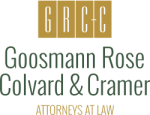The Land of the Sky Association of REALTORS® (“LOTSAR”) Grievance Committee is charged with and committed to upholding the highest principles of our association. One of the best ways to achieve this is to hold our members accountable by self-policing, utilizing our REALTOR® Code of Ethics as a guide.
Filing an ethics complaint can be a lengthy and time-consuming process. With a Citation Policy, respondents can elect to avoid the hearing process when a complaint is filed against them.
The Citation Policy has adopted a Citation Schedule of potential violations covered; this schedule is limited to these violations only. Other Code of Ethics violations and arbitration matters will be handled in compliance with the National Association of REALTORS® Code of Ethics Manual and local board grievance and professional standards committees.
Information about the Ethics Citation Program, including the Citation Schedule, will be provided as part of the information sent to potential complainants considering filing ethics complaints with the association.
Citation Policy Procedure
Complaints must be filed within one hundred eighty (180) days after the facts constituting the matter complained of could have been known in the exercise of reasonable diligence or within one hundred eighty (180) days after the conclusion of the transaction or event, whichever is later.
The citation policy adopted by LOTSAR cannot cite violations based on Articles or Standards of Practice other than those spelled out in this policy, cannot impose fines in excess of those in the policy, and cannot be utilized more frequently than provided for in this policy.
Initial Review by Grievance Committee
- When the Grievance Committee receives a complaint, it shall review the complaint to determine if it includes allegations that are covered by the Citation Schedule.
- If the complaint does not include allegations covered by the Citation Schedule or it includes a mixture of those that are covered by the Citation Schedule and those that are not, the complaint shall be processed according to the usual terms of the Code of Ethics and Arbitration Manual.
- If the complaint includes only allegations covered by the Citation Schedule; the Grievance Committee will proceed under subsection 4 and Section II – Issuance of Citations.
- If the complaint includes only allegations covered by the Citation Schedule, the Grievance Committee will review the information presented in the complaint and, taking all information in the complaint as true on its face, determine if there is a potential violation of the Code of Ethics. The Grievance Committee will not be permitted to add respondents or additional articles of the Code at this stage in the proceedings.
- If the Grievance Committee determines there is not a potential violation, the complaint shall be dismissed according to the usual terms of the Code of Ethics and Arbitration Manual, preserving the complainant’s right to appeal the dismissal.
- If the Grievance Committee determines there is a potential violation of the Code of Ethics, it shall issue a citation to the respondent pursuant to Section II, below, which shall include the fine(s) and education established by the Citation Schedule.
- In the event the members of the Grievance Committee determine the conduct described in the complaint is sufficiently egregious to warrant a hearing rather than a citation, the complaint shall be referred to the Professional Standards Committee for hearing consistent with the policies and procedures set forth in the Code of Ethics and Arbitration Manual for ethics hearings.
II. Issuance of Citations
- The citation will be sent to the respondent(s), as well as to the REALTOR® principal (Broker) of the respondent’s office. If the respondent changes firms before or after the complaint is filed but before the citation is issued, both the former and current REALTOR® principal will receive a copy of the citation. The complaint itself will be provided but the identity of the complainant will not be provided.
- The respondent will have twenty (20) days from receipt of the citation to request a full due process hearing on the complaint.
- If the respondent does not reply within ten (10) days of receiving the citation, a notice shall be issued to the respondent reminding the respondent of the deadline for requesting a hearing.
- If the respondent accepts the citation, or if the respondent does not request a hearing within twenty (20) days of receipt of the citation, this shall be deemed to be a final resolution of the complaint, which shall not be appealable or subject to any further review.
- If the respondent accepts the citation, or if the respondent does not request a hearing within twenty (20) days of receipt of the citation, payment must be received by the association no later than three (3) days after the date of acceptance or time period to request a hearing has elapsed.
- The case will be deemed to be closed upon receipt of payment, and notice will be provided to the complainant that a citation has been issued and paid.
- Failure to pay the citation amount within three (3) days after the date of acceptance or after the time period to request a hearing has expired will result in the automatic suspension of membership until the citation has been paid.
- If the respondent requests a hearing within the time specified, the complaint shall be referred for hearing.
- The complainant who initially filed the complaint shall be given the option to proceed as the complainant for the purposes of the hearing, and will be afforded all due process rights provided for in the Code of Ethics and Arbitration Manual.
- If the complainant wants to continue to be anonymous, the Grievance Committee will become the complainant. Should the complainant be a member of the public who refuses or is unable to participate in the hearing, or should the complainant be a REALTOR® member who refuses or is unable to participate in the hearing, the provisions of Section 21(f)(3) in the NAR Code of Ethics and Arbitration Manual shall apply.
III. Limitations
- Any individual REALTOR® is limited in the number and type of citations that he/she may receive, according to the following rules:
- No more than two (2) citations within a consecutive twelve (12) month period, starting on the date the first complaint was filed;
- No more than three (3) citations within a consecutive thirty-six (36) month period, starting on the date the first complaint was filed;
- No additional citations are permitted where the cumulative fine for the citations issued would be more than $400 in any three (3) year period at the same association.
- Should an individual respondent exceed the limits in Section A above, any further complaints will be processed as a regular complaint without the opportunity to participate in the citation program.
- The Professional Standards Administrator will review the citation history of a respondent to determine eligibility, and if the respondent is not eligible to receive a citation, the complaint will be forwarded to the Grievance Committee with a notation that the complaint is not covered by the Citation Schedule, but the Grievance Committee will not be told any specifics of why it is not eligible.
- The fact that a respondent has previously been issued a citation for any violation–whether or not it was paid–shall not be admissible in any ethics or arbitration hearing, including a hearing for a complaint where the respondent rejected a citation.
- Neither paid nor unpaid citations will be considered in any publication of violations should such rules be adopted by the Association; only violations after a full hearing may be published.
- Where a Hearing Panel has found a violation of the Code of Ethics after a full hearing, it may consider past citations paid by the respondent in establishing a sanction only if the citation was for the same violation at issue in the hearing. By way of example, if a citation was issued for failure to disclose a dual or variable rate commission under Standard of Practice 3-4, that citation could not be considered if a Hearing Panel later found a violation of Article 3 on some other grounds. The Hearing Panel shall not be informed of past citations for other violations.
- The Professional Standards Administrator will track the number of citations issued, the number of citations paid, and the violations for which citations were issued. This information may be provided in the aggregate to the BOR Board of Directors and the membership, but will not include details about the complaints nor identify the respondents.
- The allegations, discussions and decisions made in the citation process are confidential and shall not be reported or published by the board, any member of a tribunal, or any party under any circumstances except those established in Limitations, Section V of this policy and the Code of Ethics and Arbitration Manual of the National Association as from time to time amended.
Escalating Fine Schedule
| Offense | Fine |
| 1st Offense | $50.00 Fine |
| 2nd Offense | $100.00 fine and training |
| 3rd Offense | $250.00 and training |
Schedule of Fines
| Article 12 | Applicable Article/ Standard of Practice |
|---|---|
| The obligation to present a true picture in representations to the public includes information presented, provided, or displayed on REALTORS®’ websites. REALTORS® shall use reasonable efforts to ensure that the information on their websites is current. When it becomes apparent that information on a REALTOR®’s website is no longer current or accurate, REALTORS® shall promptly take corrective action. (Adopted 1/07) | Article 12 |
| REALTORS® must not represent that their brokerage services to a client or customer are free or available at no cost to their clients, unless the REALTOR® will receive no financial compensation from any source for those services. (Amended 1/22) | Article 12, supported by Standard of Practice 12-1 |
| The offering of premiums, prizes, merchandise discounts or other inducements to list, sell, purchase, or lease is not, in itself, unethical even if receipt of the benefit is contingent on listing, selling, purchasing, or leasing through the REALTOR® making the offer. However, REALTORS® must exercise care and candor in any such advertising or other public or private representations so that any party interested in receiving or otherwise benefiting from the REALTOR®’s offer will have clear, thorough, advance understanding of all the terms and conditions of the offer. The offering of any inducements to do business is subject to the limitations and restrictions of state law and the ethical obligations established by any applicable Standard of Practice. (Amended 1/95) | Article 12, supported by Standard of Practice 12-3 |
| REALTORS® shall not offer for sale/lease or advertise property without authority. When acting as listing brokers or as subagents, REALTORS® shall not quote a price different from that agreed upon with the seller/landlord. (Amended 1/93) | Article 12, supported by Standard of Practice 12-4 |
| REALTORS® shall not advertise nor permit any person employed by or affiliated with them to advertise real estate services or listed property in any medium (e.g., electronically, print, radio, television, etc.) without disclosing the name of that REALTOR®’s firm in a reasonable and readily apparent manner either in the advertisement or in electronic advertising via a link to a display with all required disclosures. (Adopted 11/86, Amended 1/16) | Article 12, supported by Standard of Practice 12-5 |
| REALTORS®, when advertising unlisted real property for sale/ lease in which they have an ownership interest, shall disclose their status as both owners/landlords and as REALTORS® or real estate licensees. (Amended 1/93) | Article 12, supported by Standard of Practice 12-6 |
| Only REALTORS® who participated in the transaction as the listing broker or cooperating broker (selling broker) may claim to have “sold” the property. Prior to closing, a cooperating broker may post a “sold” sign only with the consent of the listing broker. (Amended 1/96) | Article 12, supported by Standard of Practice 12-7 |
| The obligation to present a true picture in representations to the public includes information presented, provided, or displayed on REALTORS®’ websites. REALTORS® shall use reasonable efforts to ensure that information on their websites is current. When it becomes apparent that information on a REALTOR®’s website is no longer current or accurate, REALTORS® shall promptly take corrective action. (Adopted 1/07) | Article 12, supported by Standard of Practice 12-8 |
| REALTOR® firm websites shall disclose the firm’s name and state(s) of licensure in a reasonable and readily apparent manner. Websites of REALTORS® and non-member licensees affiliated with a REALTOR® firm shall disclose the firm’s name and that REALTOR®’s or non-member licensee’s state(s) of licensure in a reasonable and readily apparent manner. (Adopted 1/07) | Article 12, supported by Standard of Practice 12-9 |
| REALTORS®’ obligation to present a true picture in their advertising and representations to the public includes Internet content, images, and the URLs and domain names they use, and prohibits REALTORS® from: 1) engaging in deceptive or unauthorized framing of real estate brokerage websites; 2) manipulating (e.g., presenting content developed by others) listing and other content in any way that produces a deceptive or misleading result; 3) deceptively using metatags, keywords or other devices/ methods to direct, drive, or divert Internet traffic; or 4) presenting content developed by others without either attribution or without permission; or 5) otherwise misleading consumers, including use of misleading images. (Adopted 1/07, Amended 1/18) | Article 12, supported by Standard of Practice 12-10 |
| REALTORS® intending to share or sell consumer information gathered via the Internet shall disclose that possibility in a reasonable and readily apparent manner. (Adopted 1/07) | Article 12, supported by Standard of Practice 12-11 |
| REALTORS® shall not: 1) use URLs or domain names that present less than a true picture, or 2) register URLs or domain names which, if used, would present less than a true picture. (Adopted 1/08) | Article 12, supported by Standard of Practice 12-12 |
| The obligation to present a true picture in advertising, marketing, and representations allows REALTORS® to use and display only professional designations, certifications, and other credentials to which they are legitimately entitled. (Adopted 1/08) | Article 12, supported by Standard of Practice 12-13 |




